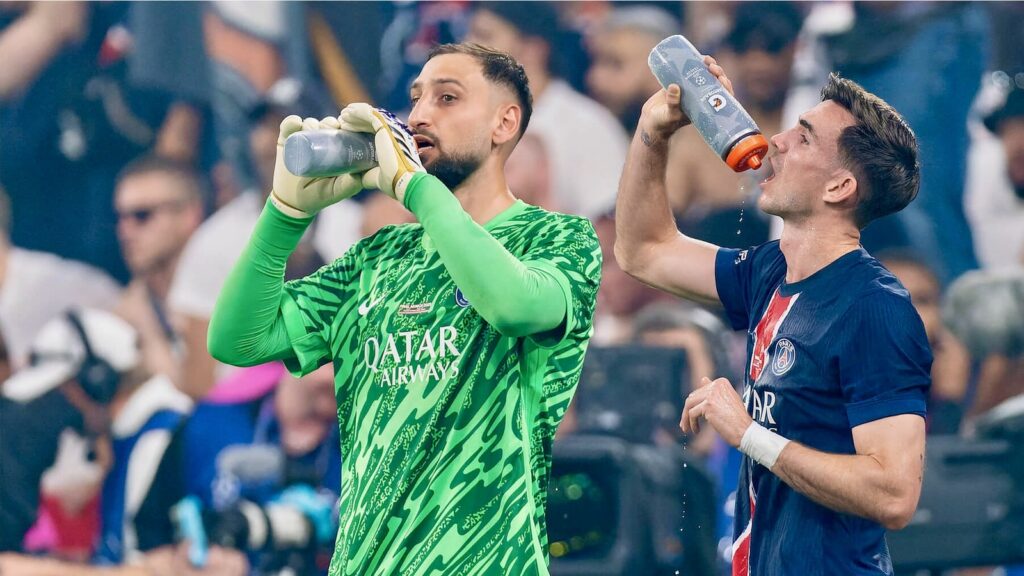If one looks into all factors of drama in a football match-having to do with tactics, goals, or plays-however, one has to acknowledge an off-camera variable that detrimentally affects performances of athletes, and that is perhaps hydration. Hydration is more than just slurping water. It is keeping ones’ energy intact, avoiding muscle cramps, and ensuring that the body can do full justice to whatever the sport demands of it.
Football is a speed assault. The players run an average of 10 km during a game. They sprint, tackle, change direction, and sweat in the sun or the pouring rain, or in freezing cold. Amidst all those activities, the players sweat; if they don’t manage the water loss well, an obvious negative impact will ensue on their performance. Therefore, dehydration is the biggest issue concerning a player’s fitness and concentration during training and matches.
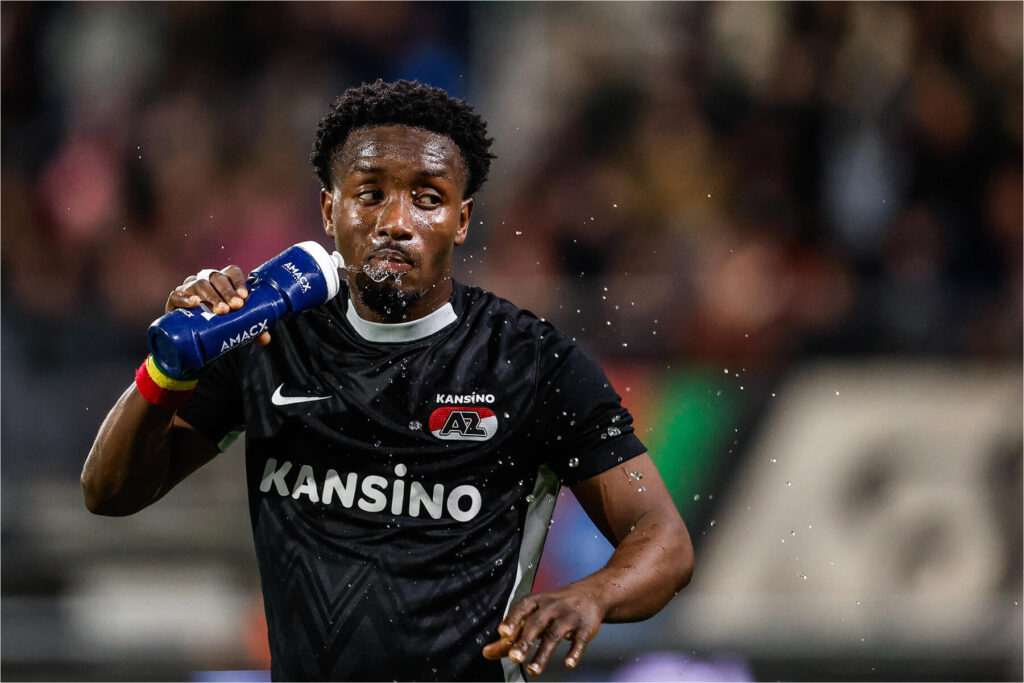
Why Is Hydration Important in the Football Game?
As much as 60% of our bodies are constituted by water. It regulates body temperature, lubricates joints, and transports nutrients and oxygen to cells. In football, this means something because players push their bodies to the extreme. Losing fluid through sweating means losing 2 percent of body weight, and this obviously brings forth a compromise in physical endurance and mental alertness.
Proper hydration ensures:
- Stamina and endurance stay high
- Muscle cramps are avoided
- Focus and reaction time are sharp
- Body temperature remains under control
- Injury risk is reduced
In simple terms, a dehydrated footballer is a slower, less focused, and more vulnerable player.
Effects of Dehydration on Performance
Even mild dehydration can cause noticeable problems during a game. As players lose fluid through sweat, their blood volume decreases. This means the heart must work harder to pump oxygen and nutrients. Muscles receive less fuel, and fatigue sets in earlier.
Dehydration also affects the brain. Decision-making slows down. Players may lose focus, misjudge passes, or react slower to opposition moves. In extreme cases, dehydration can lead to dizziness, confusion, and heat exhaustion – all dangerous on a football pitch.
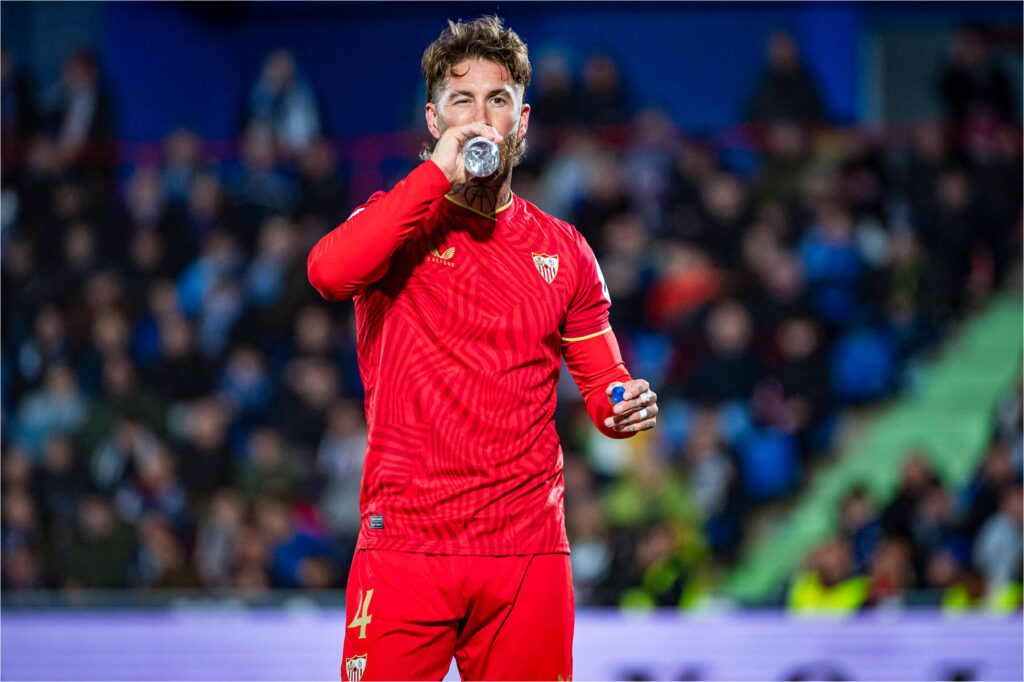
Key effects include:
- Reduced stamina: Players tire faster and can’t maintain intensity.
- Muscle cramps: Caused by electrolyte loss and fluid imbalance.
- Slower recovery: Dehydrated muscles take longer to repair after matches.
- Heat-related issues: Such as heat stroke or heat exhaustion, especially in hot climates.
Importance of Electrolytes
While water is important, it’s not enough on its own. Sweat contains electrolytes – minerals like sodium, potassium, magnesium, and calcium – that help control muscle function and fluid balance. Losing these electrolytes without replacing them can lead to cramps, fatigue, and poor coordination.
That’s why footballers often drink sports drinks or electrolyte-rich fluids, especially during and after matches. These drinks help:
- Replenish lost minerals
- Maintain nerve and muscle function
- Support hydration at the cellular level
Simply drinking water without electrolytes can sometimes lead to a condition called hyponatremia, where sodium levels drop too low, leading to headaches, nausea, or worse.
Hydration Before Matches
Hydration doesn’t start with the kickoff – it begins well before the game. Players are advised to drink plenty of fluids 24 hours before a match, especially if the weather is hot.
Pre-match hydration tips include:
- Drinking 500–600 ml of water 2–3 hours before the game
- Sipping another 200–300 ml 15–30 minutes before kickoff
- Avoiding too much caffeine or alcohol, which can dehydrate the body
Players are also advised to check their urine color – pale yellow indicates proper hydration, while darker shades suggest the need to drink more water.
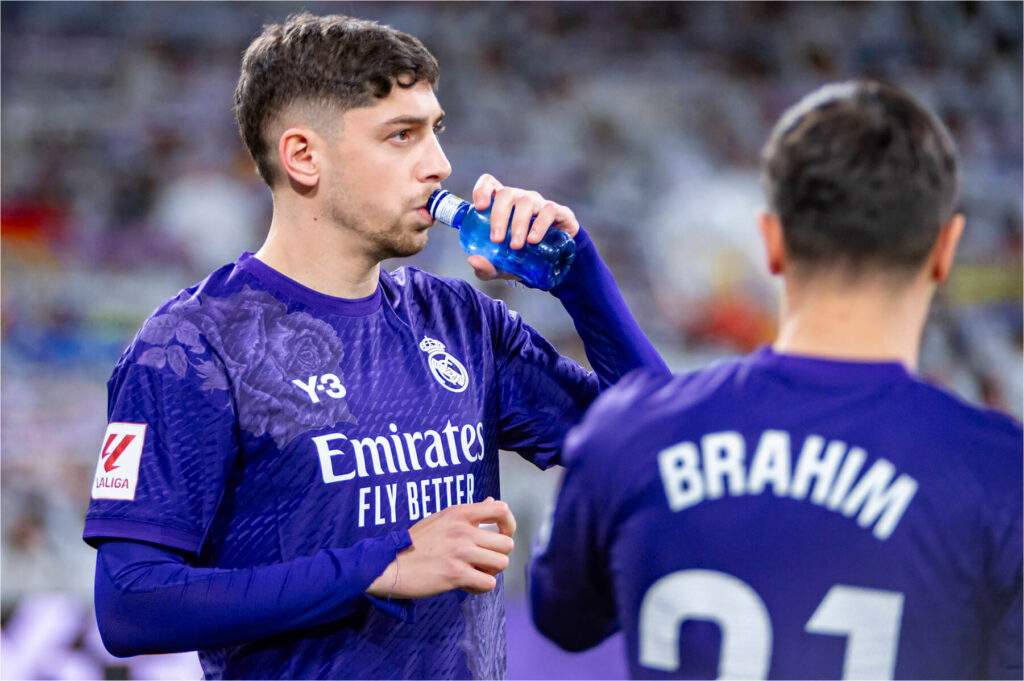
Hydration During Matches
Although matches only have one official break (half-time), hydration must be maintained throughout. During very hot games, referees may allow “cooling breaks” for players to drink water and recover.
During the game, players typically:
- Drink at half-time
- Sip fluids from sidelines during injuries or breaks
- Use sports drinks with electrolytes and carbohydrates
Even small sips help maintain performance and delay fatigue. Some clubs use personalized hydration plans, where players receive specific drinks based on their sweat rate and body needs.
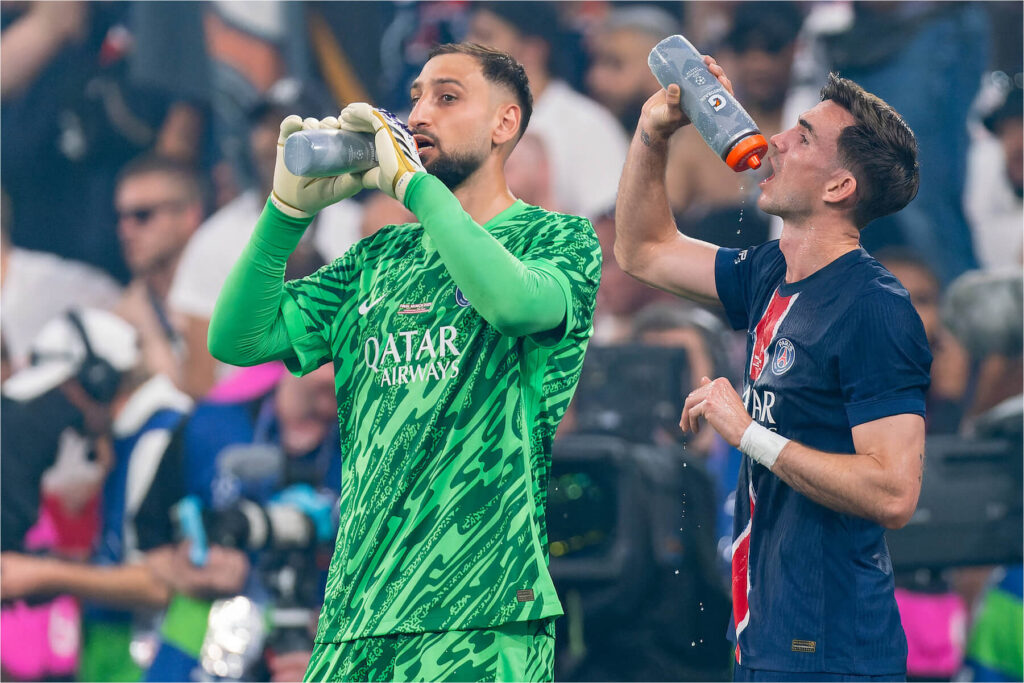
Hydration After Matches
Post-match hydration is just as important. After 90 minutes of intense physical activity, the body needs to recover. Rehydration helps repair muscles, restore fluid levels, and prevent soreness.
Recovery hydration includes:
- Drinking 1.5 liters of fluid for every kilogram of body weight lost
- Consuming electrolyte drinks or coconut water
- Eating water-rich foods like fruits and vegetables
- Avoiding sugary sodas or caffeine-heavy drinks
Many teams weigh players before and after matches to measure fluid loss and guide recovery hydration.
Climate and Hydration Needs
Weather plays a big role in how much a footballer sweats. Hot, humid conditions lead to faster fluid loss. In cold weather, players may sweat less but still lose fluids through heavy breathing.
This is why hydration strategies vary:
- In hot climates: Players drink more, use cooling towels, and take more breaks.
- In cold weather: Players need to remind themselves to drink, even without feeling thirsty.
Clubs often monitor players using sweat tests, urine checks and weight comparisons to fine-tune their hydration strategies.
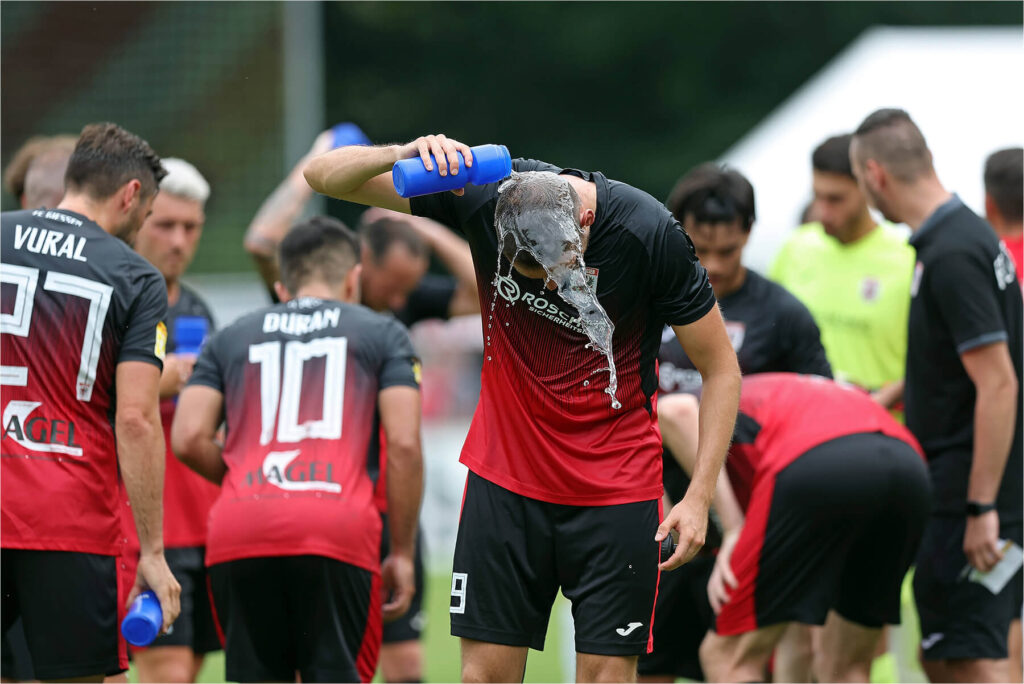
Preventing Cramps
Muscle cramps are common in football, especially towards the end of matches. These are caused by dehydration, fatigue, or electrolyte imbalances. Cramps are painful and can take players out of the game.
To prevent cramps:
- Stay hydrated
- Maintain sodium and potassium levels
- Do proper warm-ups and stretches
- Use magnesium-rich foods or supplements if needed
Some clubs also use special muscle sprays or massage techniques during matches to reduce cramp risk.
Individualized Hydration Plans
No two players are the same. Some sweat more than others. Some lose more sodium or potassium. Modern football uses science to create custom hydration plans for each player.
These plans may include:
- Sweat rate analysis
- Custom electrolyte mixes
- Daily fluid intake targets
- Hydration tracking apps
This level of detail helps top players perform at their best and avoid setbacks caused by dehydration.
Hydration: The Hidden Edge in Football
Hydration in football is not a small detail – it’s a game-changer. From stamina to focus, from cramp prevention to recovery, staying hydrated impacts every aspect of a footballer’s performance. It’s not just about drinking water, but about balancing fluids, electrolytes, and timing.
Whether it’s a World Cup final or a local league game, hydration could be the reason one team finishes strong while the other fades. In the high-stakes world of football, that makes all the difference.
